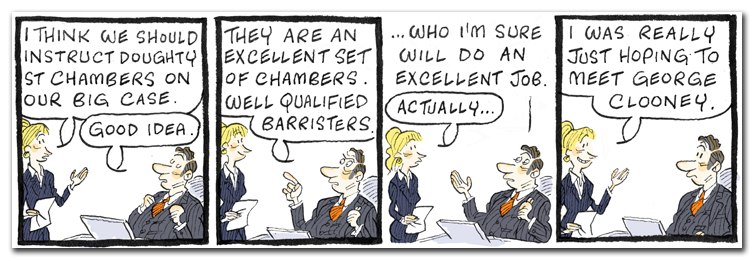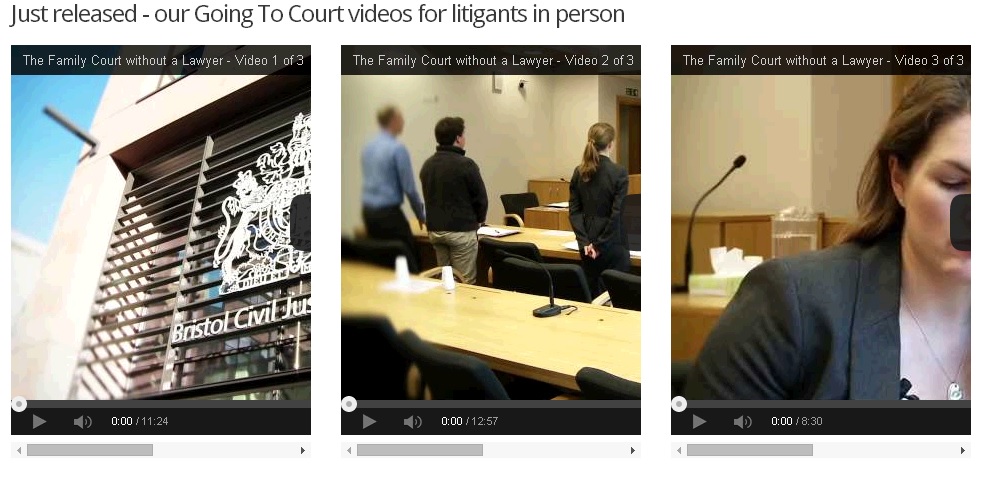Weekly Notes: legal news from ICLR – 9 May 2014
A weekly roundup of topical legal news This week’s stories deal largely with issues of representation: its quality (if you can get it) and what happens if you can’t. Operation Cotton Over the past week, there’s been a lot of commentary on the collapse of a major fraud trial, owing to the lack of suitable… Continue reading
A weekly roundup of topical legal news
This week’s stories deal largely with issues of representation: its quality (if you can get it) and what happens if you can’t.
Operation Cotton
Over the past week, there’s been a lot of commentary on the collapse of a major fraud trial, owing to the lack of suitable representation for the defendants. Though loosely referred to as Operation Cotton (or, on Twitter, #OpCotton) the case is actually titled Regina v Crawley and others.
The prosecuting authority was the Financial Conduct Authority (FCA). They alleged that the five defendants together with others were engaged in a fraudulent land banking scheme. The evidence was complex and substantial, running to over 46,000 pages plus 194 spreadsheets. The case was classified as a Very High Cost Case (VHCC). All the defendants were legally aided.
Following the announcement by the Ministry of Justice in September 2013 that it would reduce by 30% the fees paid to counsel contracted to engage in defence work on VHCC cases, all the barristers then signed up to the scheme decided not to continue. Those engaged to appear in R v Crawley returned their briefs. No other counsel or Higher Court Advocate solicitors of suitable experience could be found to represent the defendants. So, acting pro bono (ie without payment), Alex Cameron QC (who happens to be the Prime Minister’s older brother) appeared on behalf of the defendants on an application in Southwark Crown Court to have the case stayed on the grounds that a fair trial was no longer possible.
In a carefully considered ruling given on 1 May, His Honour Judge Leonard granted the stay. He said, at para 84:
Having considered all these matters I am compelled to conclude that, to allow the State an adjournment to put right its failure to provide the necessary resources to permit a fair trial to take place now amounts to a violation of the process of this court.
The decision sparked a good deal of comment, much of it suggesting that the problem had been entirely foreseeable as a consequence of the MOJ’s persistence in simply slashing legal aid fees and refusing to consider other ways of achieving savings from the annual justice bill. The following pieces are worth reading:
- Legal Aid Watch blog – How the Government should respond to the Operation Cotton judgment – from a barrister who returned one of the briefs, by Timothy Thomas. (See also his guest post on this blog,Transforming criminal justice: a response to the Lord Chief Justice’s proposals)
- Lawyer Watch blog: Crawley – a quick look and some implications, by Richard Moorhead.
- UK Criminal Law blog – Operation Cotton – VHCC Fraud case stayed due to legal aid cuts, by Dan Bunting
- FT Comment – Beyond Cameron vs Cameron: the true significance of the Operation Cotton ruling, by David Allen Green.
- New Statesman – Operation Cotton and the 23 pages which skewered Chris Grayling’s legal aid reforms, by Adam Wagner
Meanwhile, the MOJ fought back by reiterating somewhat hazy statistics about how much counsel could still expect to earn on a case like this (£100,000, though without saying for how many months’ or indeed years’ work, or how much of that would go in expenses, etc).
- Typical of this response was an article by the LibDem MP Simon Hughes who is now a Justice minister, in the Guardian: Fraud lawyers not underpaid despite legal aid cuts, says justice minister
Stop Press (via CrimeLine) The appeal (permission and rolled up hearing if granted) in R v Crawley and others (VHCC case stayed due to lack of advocates) will be heard on Tuesday 13 May 2014. Leveson LJ presiding.
The future of criminal advocacy
The decision in the Operation Cotton case may give the impression that criminal advocacy doesn’t actually have much of a future. And indeed the criminal bar does generally feel very threatened, not least by competition from those HCA solicitors who are increasingly undertaking criminal trials.
This was one aspect of the investigation carried out by a review chaired by Sir Bill Jeffrey, at the request of the MOJ. On 7 May the Jeffrey review’s Final Report was published.
It makes for uncomfortable reading in some respects. ‘Effective advocacy is at the heart of our adversarial system of criminal justice’, it begins, but notes later on that barristers are ‘manifestly better trained’ as specialist advocates than solicitors, despite flood of HCAs following Legal Services Act. ‘The disparity in mandatory training requirements expected of barristers and solicitor advocates reflects historic differences in the main focus of the two sides of the profession’. ‘There would be a good deal to be gained from a common approach’, ie fused education, if not practice; or some system of accrediation, as currently for CPS, perhaps by Legal Aid authorities. (But for how much longer?)
Read report in full here (PDF)
The Review was broadly welcomed by the Bar regulator, the Bar Standards Board, as follows:
The BSB welcomes the publication of Sir Bill Jeffrey’s review and appreciates the careful analysis of the importance of high quality advocacy in our courts. Sir Bill gives a view on a number of key issues – including education and training, the Quality Assurance Scheme for Advocates (QASA), and co-operation between the regulators – which we will carefully consider, along with the review’s other recommendations. The review sets out a number of challenges for us and we will look forward to addressing them. Our Board will give closer consideration to the detail of the review at its meeting later in May.”
What if you don’t have a lawyer?
By contrast, in the arena of civil law the effect of the Legal Aid, Sentencing and Punishment of Offenders Act 2012 has been to remove the availability of legal aid for many types of claim, including many family law cases. The result is that those caught up in disputes in those areas will either need to pay for their own lawyer, or represent themselves.
Litigants in person (LIPs) are likely to find the experience of going to court and arguing a case before a judge a bewildering and stressful experience. Full marks, then, to barrister Lucy Reed, author of Family Courts Without a Lawyer and of the family law blog Pink Tape, for her latest production: a set of videos, accessible on YouTube, giving step-by-step advice to Litigants in Person preparing for a court appearance. The films are well made and edited and their calm advice will reassure even the most nervous first timer. Link to videos here.
Recent judicial speeches
A feature we plan to include in future Weekly Notes is a handy list of links to recent judicial speeches and pronouncements. Over the last month or so, these have included:
- Sir James Munby, President of the Family Division, on The Family Justice Reforms, (29 April) celebrating recent family justice reforms and the formal launch on 22 April of the new Family Court. This does not replace the Family Division of the High Court, but it supersedes the Family Proceedings Court and, effectively, replaces the Family County Court and Family Magistrates Courts with a single court in which judges of various levels of seniority, including High Court judges, sit.
- Senior Presiding Judge, Lord Justice Gross, on What is Crime? (28 April 2014), a broad-ranging and speculative speech for the The Limits Of Criminalisation Conference. “As it seems to me, therefore, like dictionary definition, general classification does not (or not satisfyingly) illuminate the limits of criminalisation. As a common lawyer should, I shall instead attempt to illustrate the limits of criminalisation, perhaps, in the process of doing so, raising more questions than furnishing answers, using three examples: (I) Morals and the criminal law; (II) Terrorism and freedom of opinion; (III) Drugs, public health, resources and incentives.
- Another by Gross LJ, The Judiciary: The Third Branch of the State (3 April 2014), another wide ranging discussion, on the rule of law, the role of the military, the separation of powers, and (perhaps mindful of next year’s 800th anniversary) Magna Carta.
- Lord Chief Justice, Lord Thomas of Cwmgiedd, giving a speech to the The City of London Solicitors’ Company, (31 March) on the provision of a court service, especially one geared for commercial litigation, fit for the 21st century and therefore worthy of the City of London and its global position in both law and commerce. Also, perhaps more controversially in the White-Tied environs of the City, his concerns about the “gender and ethnicity imbalance in the judiciary”.
And finally…

… a bit of Friday Frivolity with Queen’s Counsel, the official cartoon of the legal profession, by Alex Steuart Williams.
